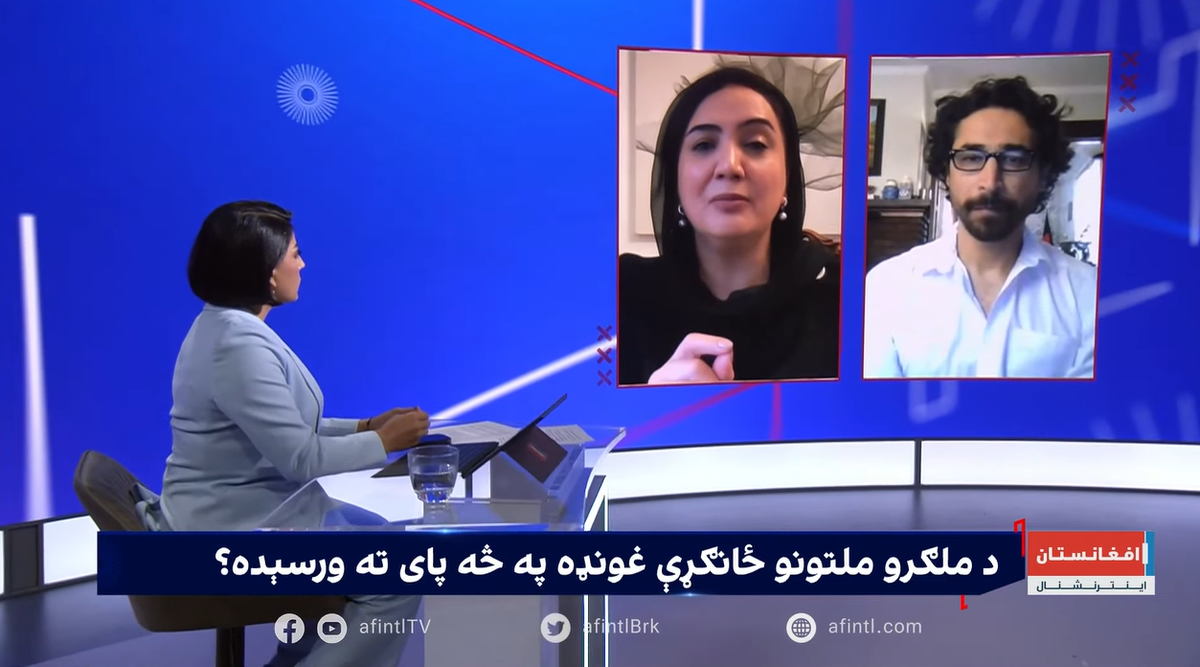The Taliban have allegedly purchased satellite jammers from Iran to disrupt the last remaining independent television channel reporting on the regime’s brutal crackdown on human rights.
Iran’s assistance helped the Taliban leaders acquire orbital jammers for the satellite stations of the Afghanistan International Television and shut down broadcast for more than a week, AITV’s executive editor Harun Najafizada told The Independent.
The channel is popular among Afghans for their critical coverage of the country’s hardline Islamist regime.
Taliban officials reportedly sent disruptive signals from a ground station within Afghanistan to the satellite, interfering with its broadcast. Hundreds of people in Afghanistan saw a blank screen from 5 September to 13 September before the channel shifted to a different satellite frequency.



Yes not everything is down to ecominics, the bombs and bullets are probably a more significant factor. Being unable to feed your family is bad, burying your family is worse.
And yes, the middle class Afghanis can’t put up a fight for many reasons, one of which is that they largely stopped existing. The moment they are locked out of their personal and business savings, they become poor desperate Afghanis.
Can you explain your disagreement or argument? I dont understand what you are getting at, and “elaborate on pre-2001 afghanistan” is a very broad topic.
And burying someone else’s family for local disagreements is even worse.
Would you like to elaborate how the US freezing assets after the Taliban overran the country and seized control of its institutions stopped the Afghani middle class from putting up a fight against the Taliban from overrunning their country?
If the US hadn’t frozen the assets, what would have happened is that the Taliban, then controlling the levers of government, would have had access to them. But even if we assume that wasn’t an issue, what the fuck is the middle class supposed to do in the midst of a mass offensive by regional Islamist warlords? The development of a middle class is essential to democratic development, but it’s not a wall against the use of all force - the middle class alone doesn’t fight or lead wars. The middle class is glue; an ongoing war is a fucking sledgehammer. Feeding the Afghan middle class all the money in the world after the Taliban offensive started up wouldn’t have changed that.
The two-decades of US occupation were not some outbreak of brutality which damaged Afghanistan. Afghanistan had been in far greater unbroken turmoil since the early 1970s, and the Taliban regime which preceded the US invasion (and, now, has resumed) is far more brutal. Even the Mujahideen government which preceded the Taliban was more brutal than the US-backed national government. Afghanistan’s essential problems are not something that can be chalked up to “Bad things happened in the past five historical minutes”.
This isn’t a matter of happenstance - Afghanistan is simply not in a good position to become a functioning state - not culturally, not demographically, not economically. The ethnic conflicts are too deep and the imbalance of power too pronounced - every goddamn attempt at making a firm national government has utterly failed because the realities on the ground favor extreme decentralization of power, and not in a democratic sense - in a ‘local elites and ethnic loyalties’ sense.
I think we are in agreement on almost everything here.
The middle class can do nothing in the face of a regional offensive by Islamist warlords. When it gets to that point it’s already too late.
My argument is in agreement with what you have said: a strong middle class is a bulwark against the formation and expansion of warlords.
As for the second issue, I fear my words were unclear here- when I referred to “two decades-long invasions” I was speaking of two separate invasions, each decades long. Namely the Soviet invasion in 1979 and the American invasion in 2001. The 2001 invasion was brutal and unjustified, but we can agree it was not the root cause of Afghanistan’s problems.
One issue we may find disagreement on is the attempts at creating a firm national government. I am not aware of any serious attempts at such a thing since the 70s. Each government has been either a puppet government set up to suit foreign interests, or a reactionary warlord. It may be true that the peculiar circumstances of Afghanistan prevent it from having a firm national government, but that hypothesis goes untested in the face of overwhelming foreign meddling.
Oh, in that case, yeah, we are mostly in agreement. I would argue that both the Sovs and the Americans attempted to form a firm national government, that both the monarchy and the Afghan Republic preceding them also attempted it, and the Taliban has (twice now) in their own grotesque way attempted the same. The Mujahideen were more interested in just not falling apart into civil war again, a very ‘symptomatic’ government of the ‘leave the locals to their affairs’ attitude that Afghanistan governments struggle to fight.
I don’t think I would say it’s impossible or prevented completely, but I would say that it’s… definitely not something that any one factor can fix or resolve. Whatever route Afghanistan takes to modernity, it will take… considerable overhaul, and that’s something only the people of the region itself can make progress on.